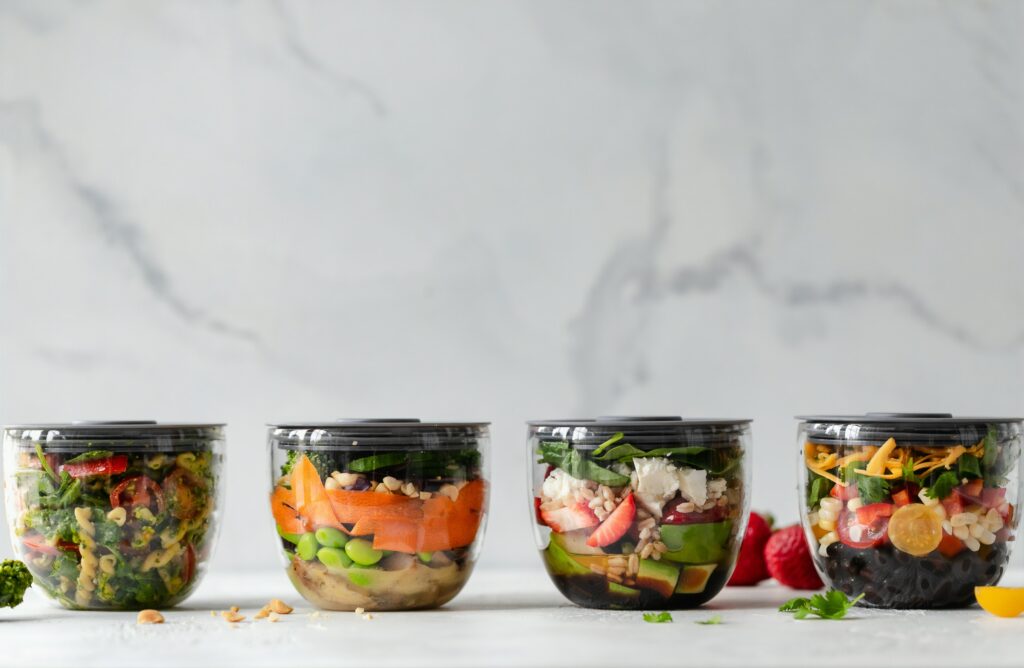
Photo by Yuri Shirota on Unsplash

Photo by Becca Tapert on Unsplash
After childbirth, nursing mothers need around 500 additional calories in their regular diet to create a healthy lifestyle and produce adequate breast milk to feed their baby.1 So, after the incredible intensity of childbirth, it is vital that new mothers reflect upon their lifestyle and choose a balanced diet that will help them post-partum. This article will outline three things new mothers should consider when developing their nutritional plans.
Maintaining a high-protein diet:
Amongst the chaos of new motherhood, when you’re preparing baby bottles and frantically dealing with all this new responsibility, it can be hard to find time to prepare food for yourself. You will need meals that are quick and easy to make but also keep you full longer during the day. That’s where high-protein meals come in to save the day. An article by Healthline1 highlighted that eating high-protein meals will reduce your hunger levels and will keep you fuller during your busy day. Protein can come from a range of foods: fish, lean beef, chicken, but also legumes and beans if you’re eating a more plant-based diet. For example, eggs are a great source of protein, and if you’re short on time, you can always meal prep a batch of egg muffins for a quick meal. Increasing your protein intake does not have to be a complicated task, it can be easy as meal-prepping something quick and efficient that you can eat throughout the week!
The benefits of snacking:
As mentioned above, finding the time to prepare meals for yourself can feel like an impossible task for a new mother, and sometimes, it can be easier to just binge easy-access junk food instead of healthy meals. Some new families might have benefitted from gracious food donations from friends and family during the early days of life with a newborn but eventually, it’ll be time to adjust your life back to home-cooked meals.
A great way to combat this is by meal prepping quick, healthy snacks that you can eat throughout the day. This way, you can still maintain your healthy diet whilst dedicating your time to your newborn.
Preparing snacks is not a time-consuming task, it can be as simple as having a bowl of blueberries or popcorn or indulging in chocolate peanut butter dates. These snacks are nutritious and require minimal time on your part. So, while you’re preparing baby bottles, folding laundry, or watching your baby nap, munch on these snacks and keep yourself full!
Staying hydrated:
When you’re busy monitoring the liquid intake of your newborn and measuring the exact ounces of milk they’ve consumed, it is important to remember that monitoring your level of hydration is just as necessary after childbirth.
Research shows that dehydration in a nursing mother can cause decreased milk production, fatigue, and frequent headaches. For new mothers, it’s best to invest in a new water bottle that you use throughout the day in intervals.
When your baby is down for a nap, take the time to have some water, or indulge in fruits or vegetables with a high-water content, such as watermelons or cucumbers. Keeping yourself hydrated is crucial for post-partum nutrition and for any balanced diet.
Overall, food and nutrition after childbirth is something every new mother needs to take the time to consider. By setting yourself up for a healthy diet early on, you’re creating a long-term lifestyle that you and your body will benefit from and will ultimately turn you into a great role model for your child. Don’t make any drastic or sudden changes to your normal diet, or the diet you’ve adapted during your pregnancy, but these are great ways to begin looking thoughtfully at your nutrition.
1 Nutrition and Sleep Postpartum: New Mom Services at UPMC Magee-Womens in Central Pa, University of Pittsburgh Medical Centre, https://www.upmc.com/services/south-central-pa/women/services/pregnancy-childbirth/new-moms/after-birth/nutrition-sleep-postpartum#:~:text=A%20Balanced%20Diet&text=Nursing%20women%20need%20about%20500,of%20fresh%20fruits%20and%20vegetables
210 Science-Backed Reasons to Eat More Protein, Healthline, https://www.healthline.com/nutrition/10-reasons-to-eat-more-protein#:~:text=Reduces%20Appetite%20and%20Hunger%20Levels&text=Studies%20show%20that%20protein%20is,4%20%2C%205%2C%206%20


